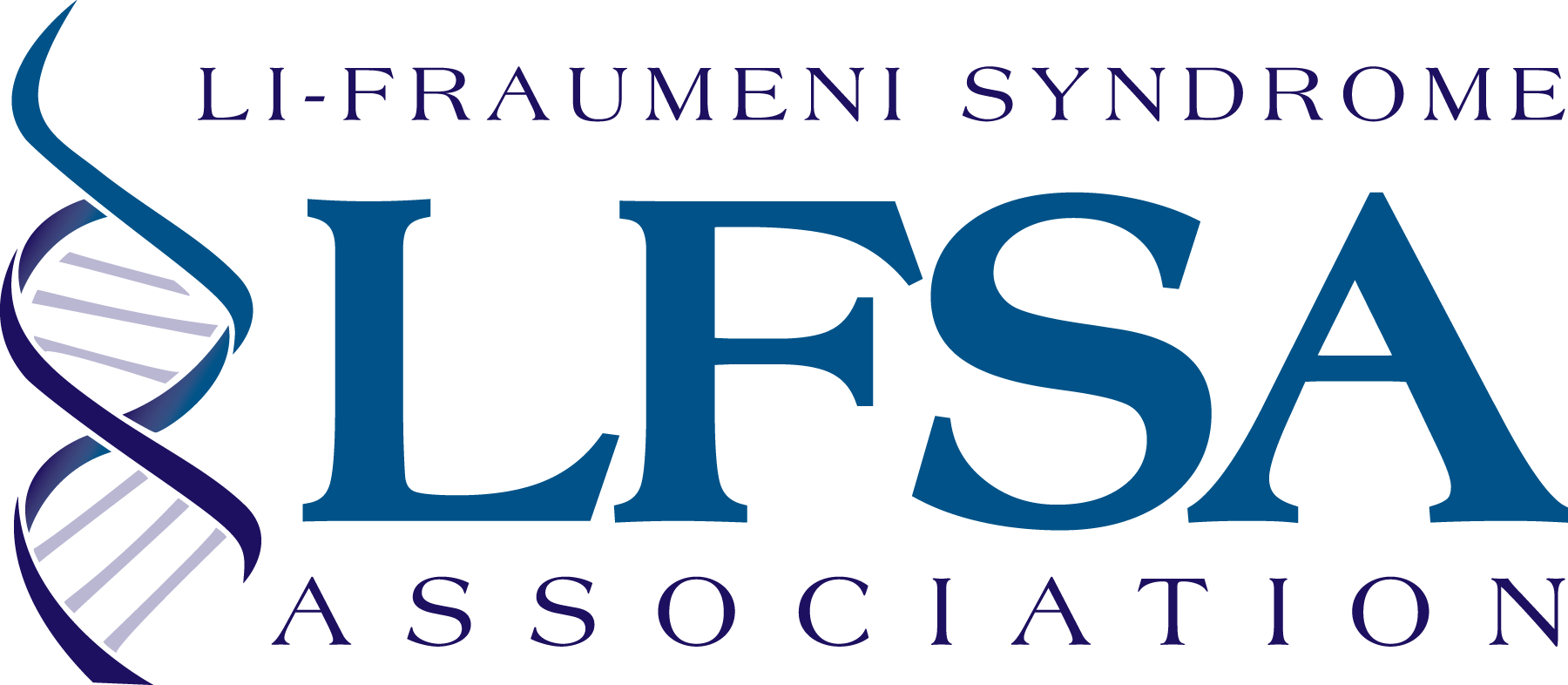Consensus Statement by the Li-Fraumeni Syndrome Association Regarding Surveillance of those affected with Li-Fraumeni syndrome
The Li-Fraumeni Syndrome Association’s board of directors and its Medical Advisory Board have determined there is sufficient evidence to recommend that, in addition to regular physical exams and other investigations, all patients diagnosed with Li-Fraumeni syndrome (LFS) receive annual, rapid, whole-body MRI scans.(1,2)
Rationale:
- Nearly 100% of individuals with LFS (caused by pathogenic high-cancer-risk variants of the TP53 tumor suppressor gene) will develop cancer over their lifetimes, many of them during childhood and before the age of 40 years.(3) Following their first cancer diagnosis, patients with LFS have a 50% probability of developing subsequent neoplasms.(3)
- Most screening protocols for individuals with LFS who have already been diagnosed with a cancer typically offer partial scans that target the previously diagnosed cancer site in order to detect a relapse (e.g., brain scan due to a primary diagnosis of glioma). However, this ignores the early detection and identification of other, unrelated, life-threatening, primary cancers that individuals with LFS have a high risk of developing.
- Pre-symptomatic cancer surveillance that includes rapid whole-body MRIs has been found to be cost-effective for individuals with LFS. When measured against the commonly accepted willingness-to-pay threshold of $100,000 per life-year gained by third-party insurers, the surveillance strategy that includes rapid whole-body MRIs has a 98% probability of being the most cost-effective option for early cancer detection for LFS patients that greatly improves clinical outcomes.(4)
- Given the nature of this genetic predisposition, specifically its high risk and early-onset risk of developing cancer, implementing a comprehensive surveillance plan that includes rapid, whole-body MRIs for those who have LFS is unequivocally justified, and is cost-effective for health insurance providers.
(1) Cancer Screening Recommendations for Individuals with Li-Fraumeni Syndrome Clin Cancer Res; 23(11) June 1, 2017. https://www.lfsassociation.org/wp-content/uploads/2024/03/e38.full_.pdf
(2) Baseline Surveillance in Li-Fraumeni Syndrome Using Whole-Body Magnetic Resonance Imaging: A Meta-analysis. JAMA Oncol. 2017 Dec 1;3(12):1634-1639. doi: 10.1001/jamaoncol.2017.1968. https://www.ncbi.nlm.nih.gov/pubmed/28772291
(3) Mai PL, et al. Risks of first and subsequent cancers among TP53 mutation carriers in the National Cancer Institute Li-Fraumeni syndrome cohort. Cancer. 2016 Dec 1;122(23):3673-3681. doi:10.1002/cncr.30248. Epub 2016 Aug 6. https://www.ncbi.nlm.nih.gov/pubmed/27496084
(4) Tak CR, Biltaji E, Kohlmann W, et al. Cost-effectiveness of early cancer surveillance for patients with Li-Fraumeni syndrome. Pediatric Blood Cancer. 2019;66(5):e27629. https://www.ncbi.nlm.nih.gov/pubmed/30719841

